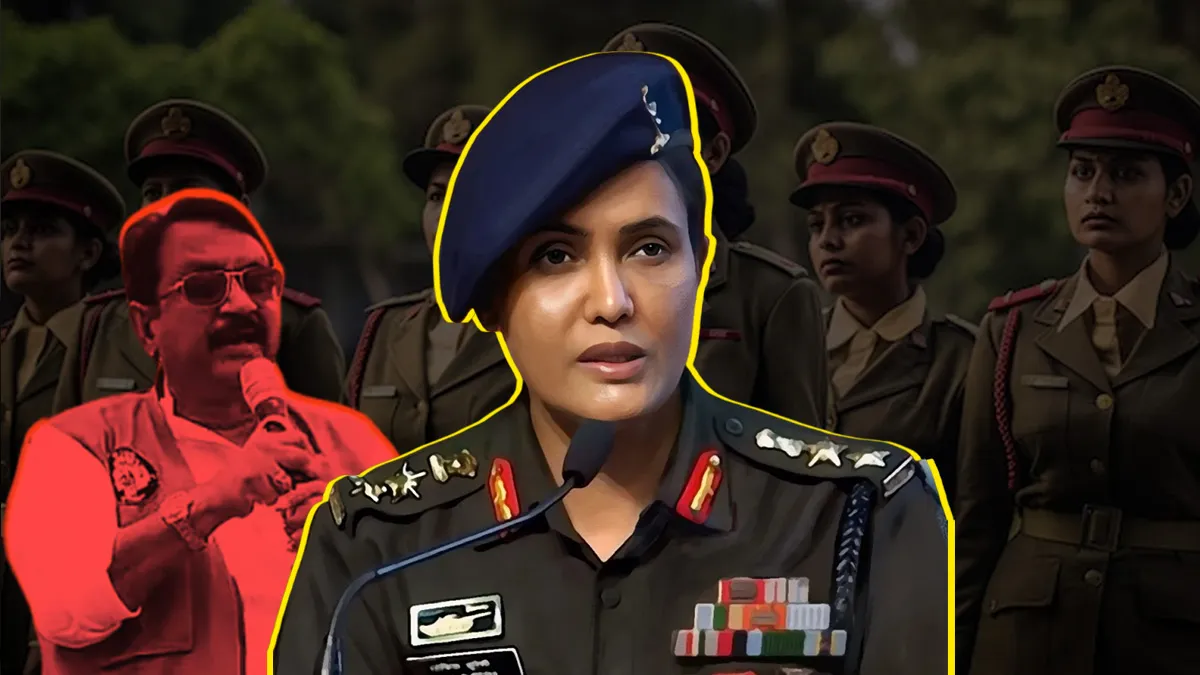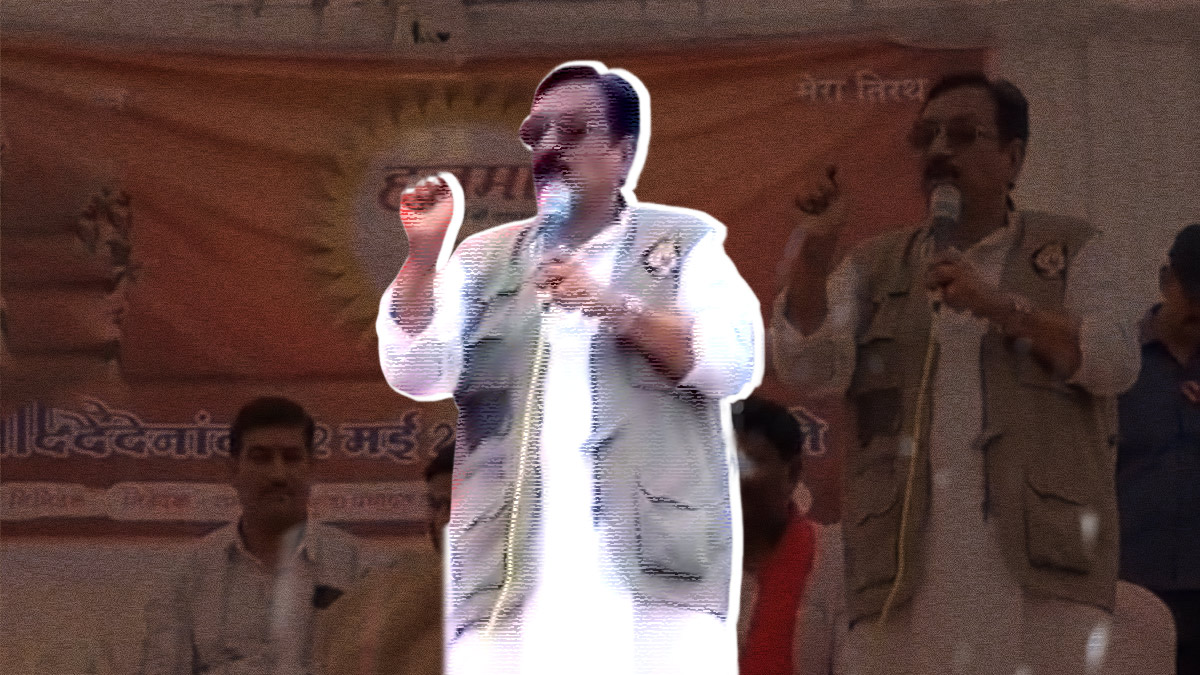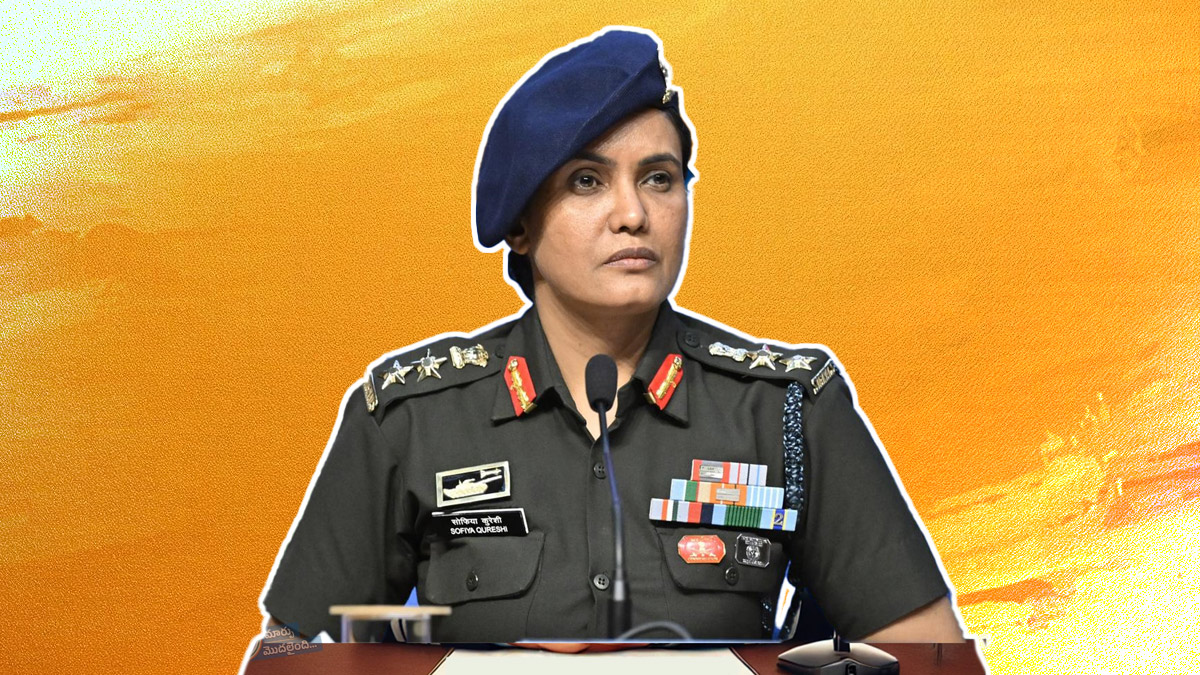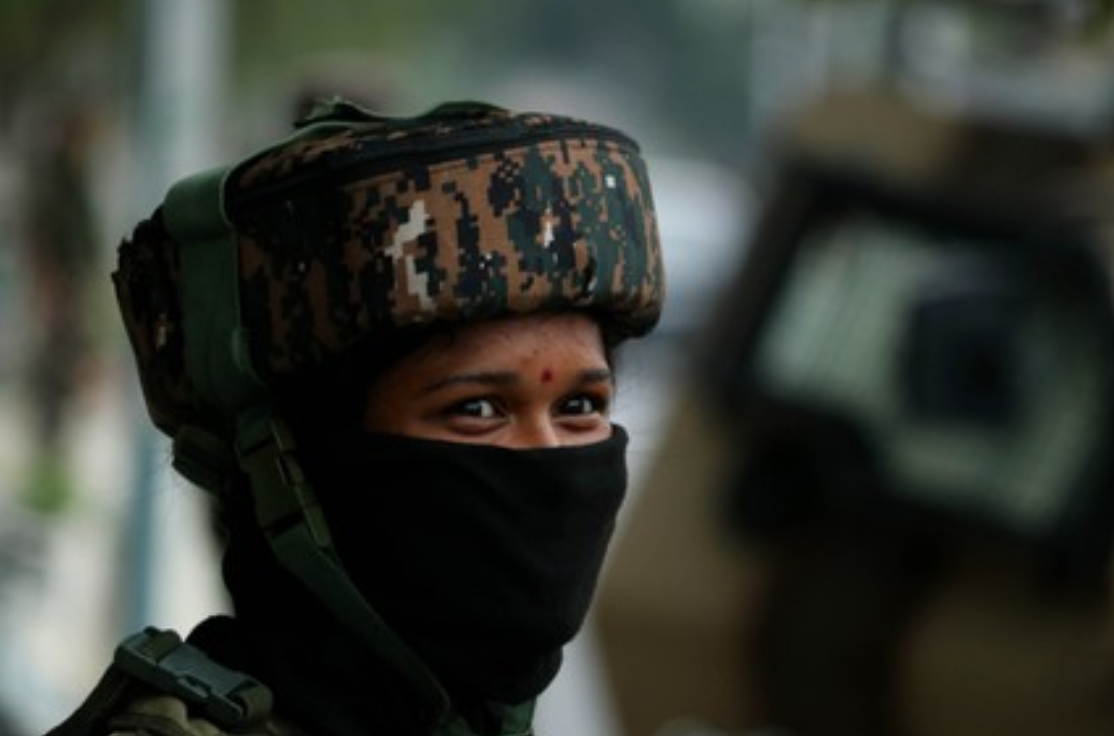
After Operation Sindoor, Colonel Sofiya Qureshi addressed the nation with calm authority, a commanding officer who had just led a successful mission and represented the very best of the Indian Army. But within days, her name was dragged into a political spectacle. On May 13, 2025, Madhya Pradesh Minister Kunwar Vijay Shah stood on a public stage and reduced her contribution to a communal, sexist punchline, cheered on by those around him. Instead of celebrating her courage, the spotlight turned to yet another man in power using his platform to humiliate a woman in uniform.
Madhya Pradesh Tribal Affairs Minister Vijay Shah made deeply problematic statements at a cultural event in Mhow. Referring to a recent military operation, he said, "the terrorists had wiped the sindoor of our sisters and daughters, and we sent their own sister to give it back to them in kind."
His comments grew increasingly inappropriate as he continued, "They stripped Hindus and killed them, and Modi-ji sent their sister to return the favour. We couldn't undress them, so we sent a daughter from their community... You, widowed sisters of our community, so a sister of your community will strip you naked. Modi-ji proved that the daughters of your caste can be sent to Pakistan to take revenge."

These statements weren't merely offensive; they reduced a decorated military officer's professional accomplishments to her religious identity while casting her role in crude, sexualised terms.
The Jabalpur High Court responded with extraordinary severity. A bench comprising Justices Atul Sreedharan and Anuradha Shukla condemned Shah for using "language of the gutters" against a senior Indian Army officer.
The court didn't mince words, "The armed forces, perhaps the last institution existing in this country, reflecting integrity, industry, discipline, sacrifice, selflessness, character, honour and indomitable courage... has been targeted by Mr Vijay Shah who has used the language of the gutters against Col Sofia Qureshi."
Identifying the gravity of these statements, the court found that Shah's comments potentially violated Section 152 of the Bharatiya Nyay Samhita, which addresses acts endangering national sovereignty, unity, and integrity—an offence punishable by life imprisonment. Additionally, the court determined that Section 196 of the Indian Penal Code, concerning the promotion of enmity between communities, might also apply.
The officer at the centre of this controversy, Colonel Sofia Qureshi, isn't just any military personnel. She's a trailblazer whose achievements were specifically highlighted by the Supreme Court in its landmark 2020 judgment granting permanent commission to women officers.
The Supreme Court noted, "Lieutenant Colonel Sophia Qureshi (Army Signal Corps) is the first woman to lead an Indian Army contingent at a multi-national military exercise named 'Exercise Force 18', which is the largest ever foreign military exercise hosted by India."

Her service record includes participation in United Nations Peacekeeping Operations in Congo in 2006, where she monitored ceasefires and supported humanitarian activities in conflict zones. More recently, she was one of two officers who briefed the media on ‘Operation Sindoor,’ a significant military operation.
Shah's statements, however shocking, represent just one instance in a pattern of discrimination against women in the armed forces. Despite the Supreme Court's 2020 ruling allowing women to take command roles, influential military figures have repeatedly questioned women's capabilities.
Former Chief of Army Staff General Bipin Rawat once suggested that women officers on the frontline would face sexual harassment complaints, arguing that jawans from rural areas aren't accustomed to interacting with women. He even expressed concern about providing maternity leave to commanding officers, stating, "Do I put a restriction on her to say that in that command tenure, you will not be given maternity leave? If I say that, there will be a ruckus created."
More recently, Lieutenant General Rajeev Puri, the outgoing Corps Commander of the 17 Corps, claimed female commanding officers demonstrated "poor interpersonal relations," an "exaggerated tendency to complain," and a "lack of empathy" for their subordinates.
The Indian Navy similarly restricts women's roles, prohibiting them from serving aboard ships despite allowing them in education, law, and naval construction positions.
Don't Miss: Operation Sindoor: 5 Highlights From India’s Strike on PoK Terror Bases

Following widespread condemnation, including from former Madhya Pradesh Chief Minister Uma Bharati, who called for his dismissal, Shah offered a qualified apology, "Colonel Sofiya Qureshi is more important than my sister to me because she rose above caste and community and took revenge. I did not intend any offence. Still, if anyone felt bad, I apologise not once but ten times."
VIDEO | Here's what Madhya Pradesh Minister Vijay Shah said while apologising for his remarks about Col. Sofiya Qureshi:
— Press Trust of India (@PTI_News) May 14, 2025
"I apologise for my recent statement, which hurt the sentiments of our society. The work done by Colonel Sofiya Qureshi, rising above religion and caste, is… pic.twitter.com/kh2Jnp8CAe
This apology, however, fails to address the fundamental problem. Shah's original statement wasn't merely personally offensive—it weaponised an officer's identity, undermined military professionalism, and reinforced harmful stereotypes about women in uniform.
The Supreme Court's 2020 judgment acknowledged the discrimination faced by women in the armed forces and called for change. Yet five years later, women still face scrutiny about their capabilities, their commitment, and even their loyalty.
What does it say about our society when women who risk their lives for the nation must continuously prove themselves worthy of the uniform they wear? When their professional achievements are reduced to their gender or religious identity? When can ministers make such derogatory statements with apparent impunity?
True respect for our armed forces means honouring all who serve, regardless of gender or background. It means recognising that patriotism and service are not defined by identity but by actions and commitment.

In a time when national security faces complex challenges, we cannot afford to undermine our own strength through divisive rhetoric and discriminatory attitudes. Women like Colonel Qureshi aren't serving despite being women, they're serving as capable, committed professionals who happen to be women.
Until our institutions and political leaders truly internalise this fact, speeches about women's empowerment will ring hollow, and the promise of equality enshrined in our constitution will remain unfulfilled for those who wear the uniform with pride.
For more such stories, stay tuned to HerZindagi.
Image Courtesy: Freepik
Also watch this video
Herzindagi video
Our aim is to provide accurate, safe and expert verified information through our articles and social media handles. The remedies, advice and tips mentioned here are for general information only. Please consult your expert before trying any kind of health, beauty, life hacks or astrology related tips. For any feedback or complaint, contact us at [email protected].